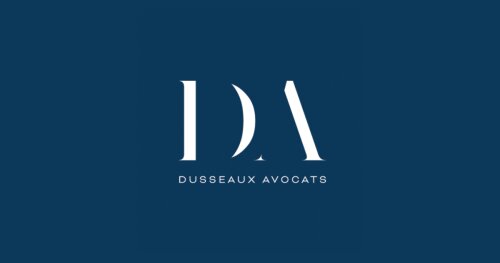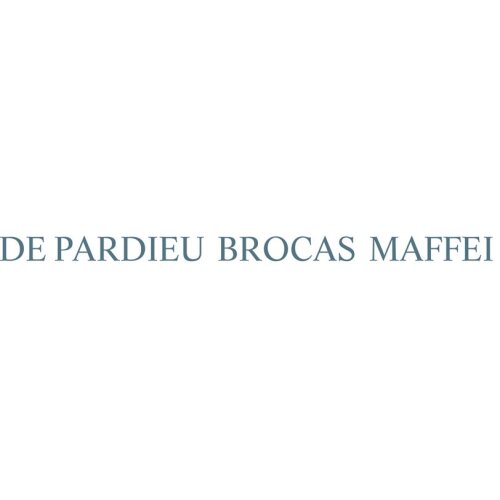Best Brokerage Lawyers in Paris
Share your needs with us, get contacted by law firms.
Free. Takes 2 min.
Free Guide to Hiring a Real Estate Lawyer
List of the best lawyers in Paris, France
About Brokerage Law in Paris, France
Brokerage law in Paris, France deals with the legal aspects governing relationships between brokers and their clients in areas such as real estate, finance, insurance, and commodities. Brokers in these sectors act as intermediaries, facilitating transactions between buyers and sellers. They are required to adhere to strict regulatory standards, ensuring that transactions are transparent, ethical, and compliant with French law.
Why You May Need a Lawyer
There are several situations where you might require legal assistance in the field of brokerage:
- Contractual Disputes: If there is a disagreement over the terms of a contract between you and a broker, legal counsel can help resolve the issue.
- Regulatory Compliance: Brokers must comply with a range of local and international regulations, and legal advice can be crucial for understanding these complexities.
- Fraud or Misrepresentation: If you believe you have been subjected to fraudulent activity or misrepresented in a transaction, legal action may be necessary.
- Licensing Issues: Obtaining and maintaining a broker's license can be intricate, and legal assistance can ensure compliance with all licensing requirements.
- Client Disputes: Issues may arise between brokers and clients over fees, services provided, or disclosures. Legal counsel can assist in resolving such disputes.
Local Laws Overview
The brokerage industry in Paris is governed by a mix of national and European Union regulations. Key aspects include:
- Licensing Requirements: Brokers must be licensed to operate legally, requiring adherence to specific professional standards and ethical rules.
- Consumer Protection Laws: These laws ensure that clients receive fair treatment and comprehensive information about risks and costs associated with brokerage services.
- Data Protection Regulations: Brokers must comply with GDPR regulations, ensuring the confidentiality and security of client data.
- Anti-Money Laundering (AML) Policies: Brokers are required to implement procedures to detect and report financial crime.
Frequently Asked Questions
What is a broker required to disclose to a client?
A broker must disclose all relevant information about a transaction, including potential conflicts of interest, costs, risks, and other essential details to ensure the client's informed decision-making.
How can I verify if a broker is licensed?
You can verify a broker's licensing status through the regulatory body overseeing their specific industry, such as the Autorité des marchés financiers (AMF) for financial brokers.
Can I terminate a contract with a broker?
Contracts may typically include terms for termination. If you experience issues, it may be beneficial to consult a lawyer to understand your rights and obligations before proceeding with termination.
What should I do if I suspect my broker of misconduct?
If you suspect misconduct, document your interactions and consult with a legal professional to explore your options, which may include filing a complaint with the appropriate regulatory body.
Are brokers allowed to offer investment advice?
Brokers may offer investment advice if they are appropriately licensed to do so. They must act in their client's best interests and provide accurate, unbiased advice.
How are brokerage fees regulated?
Brokerage fees must be transparent and agreed upon in advance with the client. Regulatory bodies oversee fee structures to prevent exploitative practices.
What is the role of the AMF in France?
The AMF regulates France's financial markets, ensuring brokers and other financial institutions comply with laws protecting investors and maintaining fair, orderly financial markets.
Can a broker represent multiple parties in a transaction?
Brokers can represent multiple parties if full disclosure is made and each party consents. However, this situation can present conflicts of interest that must be managed carefully.
Is an oral agreement with a broker legally binding?
While oral agreements can be binding under French law, it is better practice to have a written contract to avoid disputes over the agreement's terms.
What happens if a broker goes bankrupt?
If a broker goes bankrupt, clients may have recourse through compensation schemes or legal action to recover their assets, depending on the circumstances of the bankruptcy.
Additional Resources
For further information, the following resources may be helpful:
- Autorité des Marchés Financiers (AMF): The regulatory authority overseeing financial markets in France.
- Paris Chamber of Commerce: Provides resources and support for businesses, including brokerage firms.
- National Association of Realtors - France: Offers information and resources specific to real estate brokerage.
Next Steps
If you believe you need legal assistance with a brokerage issue in Paris, consider the following steps:
- Identify the specific nature of your legal issue and gather all relevant documentation.
- Consult with a specialized attorney experienced in French brokerage law.
- Prepare questions and outline your objectives for your legal consultation to ensure a productive session.
- Consider alternative dispute resolution methods, such as mediation, if appropriate for your case.
- Stay informed about your legal rights and obligations throughout the process, seeking clarification from your attorney as needed.
Lawzana helps you find the best lawyers and law firms in Paris through a curated and pre-screened list of qualified legal professionals. Our platform offers rankings and detailed profiles of attorneys and law firms, allowing you to compare based on practice areas, including Brokerage, experience, and client feedback.
Each profile includes a description of the firm's areas of practice, client reviews, team members and partners, year of establishment, spoken languages, office locations, contact information, social media presence, and any published articles or resources. Most firms on our platform speak English and are experienced in both local and international legal matters.
Get a quote from top-rated law firms in Paris, France — quickly, securely, and without unnecessary hassle.
Disclaimer:
The information provided on this page is for general informational purposes only and does not constitute legal advice. While we strive to ensure the accuracy and relevance of the content, legal information may change over time, and interpretations of the law can vary. You should always consult with a qualified legal professional for advice specific to your situation.
We disclaim all liability for actions taken or not taken based on the content of this page. If you believe any information is incorrect or outdated, please contact us, and we will review and update it where appropriate.

















